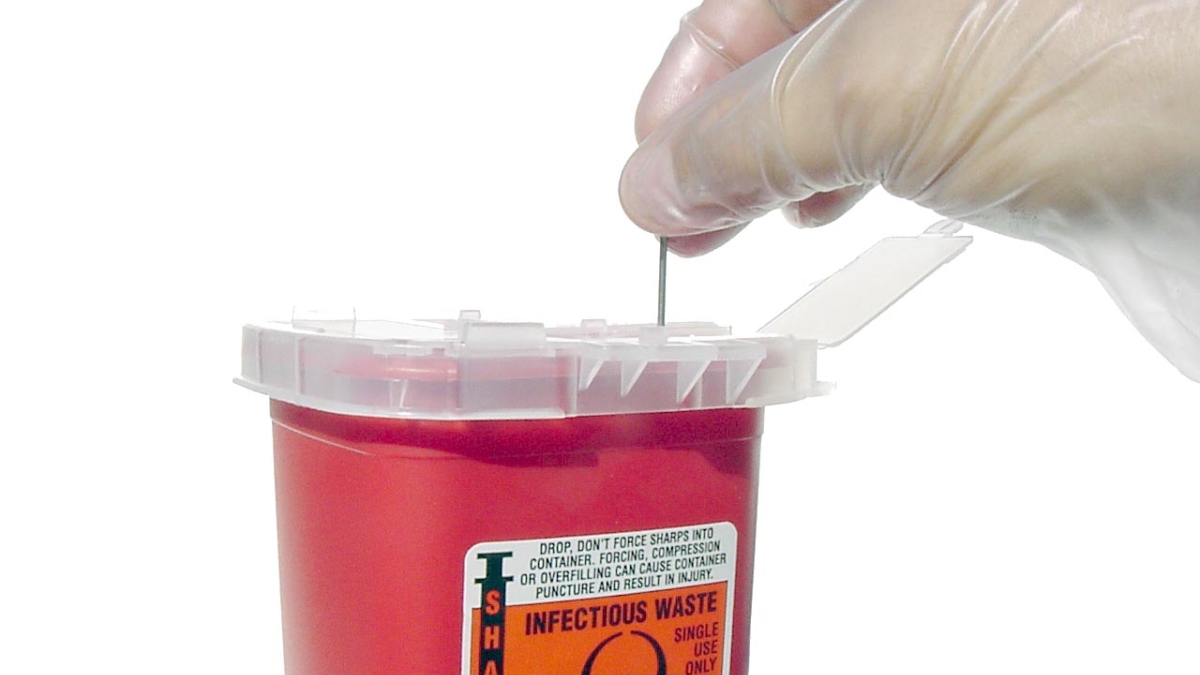September is Biosafety Stewardship Month at ASU

Bird flu. Anthrax. Smallpox. Ebola.
In the wake of widely publicized news over the threat of infectious diseases, the National Institutes of Health is among those urging all U.S. laboratories working with biohazardous materials to assess and strengthen their biosafety standards and practices this September, as part of National Biosafety Stewardship Month.
Demonstrating a commitment to the responsible and safe conduct of research at Arizona State University, Environmental Health and Safety and the Institutional Biosafety Committee are working together to raise awareness this month about issues related to biosafety, and increase resources available to the research community.
As part of Biosafety Month, ASU investigators and laboratory staff are strongly encouraged to:
• re-examine current laboratory-specific policies and procedures for biosafety measures and, if needed, modify to optimize effectiveness
• conduct inventories of infectious agents and toxins in all laboratories to ensure proper handling and documentation of those materials
• reinforce biosafety training of all lab personnel
• review local training materials and update if necessary
In general, ASU suggests investigators consider increasing the frequency of laboratory-specific biosafety training requirements.
Safety first
The Institutional Biosafety Committee (IBC) is a faculty-led committee responsible for supporting and overseeing research requiring biosafety approval for all ASU locations. Chaired by Bertram Jacobs, professor and interim director of the School of Life Sciences and a member of the Center for Infectious Diseases and Vaccinology and co-chaired by Michael Caplan, associate professor, Harrington Biomedical Engineering, the IBC provides technical resources for researchers across the university community.
All research conducted under the auspices of Arizona State University involving recombinant or synthetic nucleic acid molecules or the use of infectious agents must be registered with the IBC. The IBC is responsible for reviewing each proposed project and certifying that the procedures, personnel, training and facilities are adequate and in compliance with the federal guidelines. The Office of Knowledge Enterprise and Development Office of Research Integrity administers and provides institutional support to the IBC.
Biosafety training is among the many services offered through ASU and IBC to help ensure a safe environment. Facilitated by ASU's award-winning Environmental Health & Safety (EH&S), several specifically targeted biosafety training programs are offered at the university, as well as a lab-specific training checklist. The IBC has specific requirements regarding the frequency for biosafety training.
Headed by David Gillum, the Biosafety/Biosecurity program aims to "assure a safe and healthy environment for individuals working with biohazards materials and to assure the protection of the community and environment by preventing the exposure to those materials." The program is a liaison with the Centers for Disease Control and Prevention, and provides expertise to the IBC and ASU researchers to ensure compliance with federal, state and local regulations.
Various resources about the biosafety program, including fact sheets, checklists and manuals, are available online to help investigators and laboratory staff secure the proper safety procedures.
Biosafety stewards
ASU is already a leader in promoting and ensuring campus health and safety. Just this summer, ASU's Environmental Health and Safety Department earned two high-level awards from the Campus Safety, Health and Environmental Management Association for the its ongoing commitment to safety, evident in its comprehensive, cutting-edge programs and training initiatives.
Chemical safety and biosafety are just two of the award-winning training programs EH&S provides. Other programs include emergency management, environmental management, fire safety, general safety, government relations, incident prevention and radiation safety. The training courses can be accessed online and through My ASU.
Biosafety steward Todd Sandrin says a safe environment is the primary concern in his life science and research laboratories.
"EH&S, working closely with our IBC, provides an outstanding level of support and expertise in helping faculty and staff design lab exercises and research experiments that maximize biosafety," said Sandrin, associate dean of New College and associate professor in the School of Mathematical and Natural Sciences.
"Recently, I've been able to help steward biosafety at ASU by developing with EH&S and the IBC best practices and procedures for safe transport of samples of biological origin between different labs within ASU."
Sandrin is also the director of the New College Undergraduate Inquiry and Research Experiences (NCUIRE).